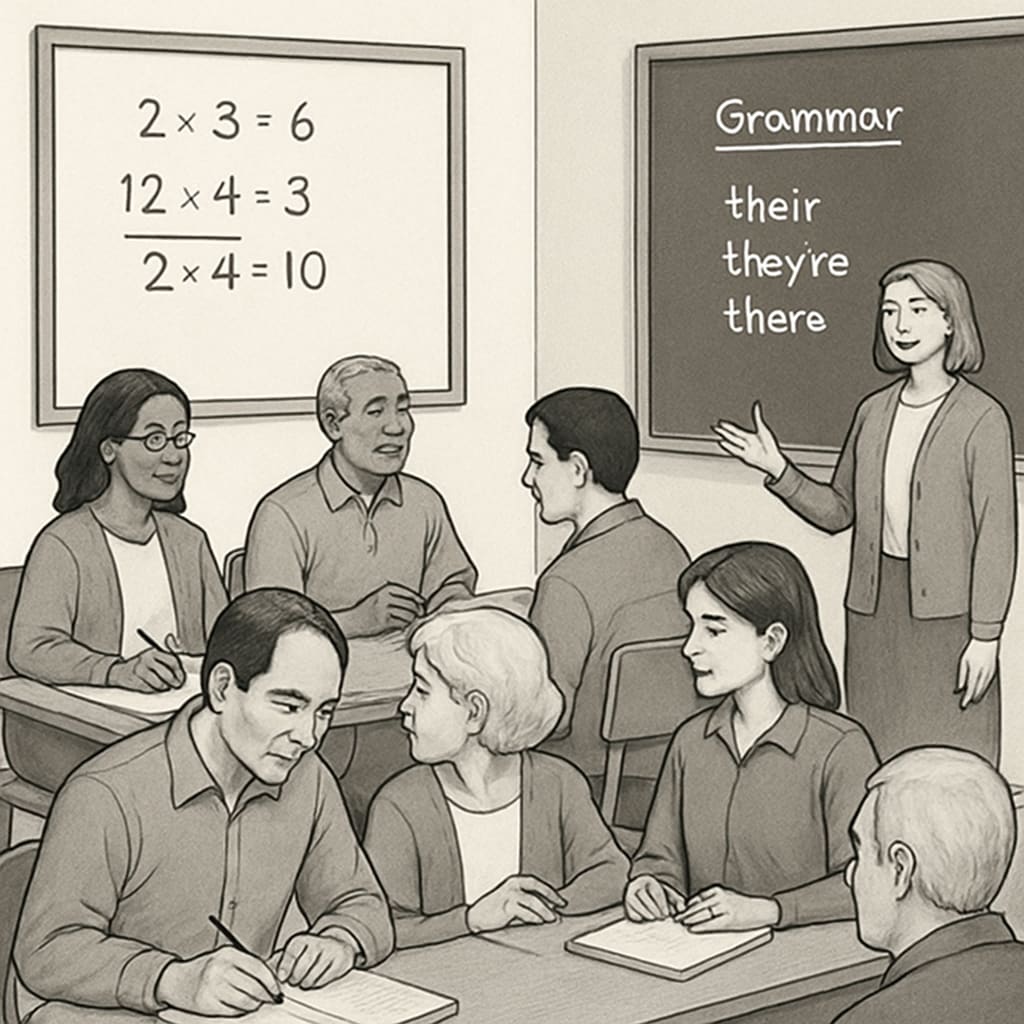Many adults struggle with gaps in foundational knowledge due to early education deficiencies. These gaps—whether in mathematics, grammar, spelling, or other core subjects—can lead to feelings of self-doubt and self-consciousness. However, it is possible to address these challenges, rebuild confidence, and acquire critical skills for success. With the right mindset and strategies, adults can embark on a transformative journey to fill these knowledge voids.

Understanding the Impact of Early Education Gaps
Early education plays a critical role in shaping an individual’s foundational knowledge. When this stage is disrupted due to socioeconomic circumstances, family issues, or ineffective teaching, it can leave adults feeling unprepared for both academic and professional challenges. These gaps are often accompanied by self-esteem issues, making it harder to seek help or begin the process of relearning.
Common areas affected by early education gaps include:
- Basic mathematics skills, such as fractions or percentages
- Grammar and sentence structure
- Spelling and vocabulary
- Critical thinking and problem-solving abilities
Understanding the root causes of these gaps is the first step toward addressing them. For example, identifying whether the issue stems from a lack of exposure to concepts or a lack of practice can inform the best strategies for improvement.
Strategies for Overcoming Foundational Knowledge Gaps
Overcoming education gaps as an adult requires a combination of psychological preparation, practical strategies, and consistent effort. Below are some effective methods:
1. Address Self-Esteem Issues: Adults often feel embarrassed about their lack of knowledge, but it’s important to understand that learning is a lifelong process. Positive affirmations, support groups, and therapy can help rebuild confidence and reduce self-doubt.
2. Leverage Online and Offline Resources: The internet offers a wealth of free and paid learning platforms designed for adult learners. Platforms like Khan Academy and Coursera provide structured courses in subjects like math, grammar, and general skills development.
3. Set Achievable Goals: Break down your learning objectives into small, manageable parts. For example, focus on mastering addition and subtraction before moving on to algebra.
4. Join Community Classes or Workshops: Local libraries, adult education centers, and community organizations often offer classes tailored to adults looking to improve their foundational knowledge.
5. Practice Consistently: Regular practice is key to mastering any subject. Create a study schedule and stick to it, integrating tools like flashcards, apps, or workbooks for reinforcement.

Rebuilding Confidence and Embracing Lifelong Learning
One of the most challenging aspects of addressing early education gaps is overcoming the fear of failure. Adults must shift their mindset from viewing gaps as insurmountable obstacles to seeing them as opportunities for growth. Celebrate small victories, such as mastering a spelling list or completing a simple math problem, to keep motivation high.
Additionally, embrace the concept of lifelong learning. Education doesn’t stop after childhood—it’s a continuous process that enriches both personal and professional lives. By adopting this perspective, adults can feel empowered to seek knowledge at their own pace.
Lastly, seek support from peers, mentors, or tutors. A strong support system can provide encouragement, accountability, and valuable insights throughout the learning journey.
Conclusion
While early education gaps may seem daunting, they are far from insurmountable. Adults can rebuild foundational knowledge in areas like math, grammar, and spelling by addressing self-esteem issues, utilizing resources, setting goals, and practicing consistently. This journey not only boosts skills but also fosters confidence and a lifelong love of learning. Remember, it’s never too late to start improving your knowledge and overcoming self-doubt.
Readability guidance: This article uses short paragraphs, clear headings, and lists to ensure readability. Active voice is prioritized, and transitions like “however” and “for example” are used throughout. The article avoids jargon, making it accessible to a wide audience.


